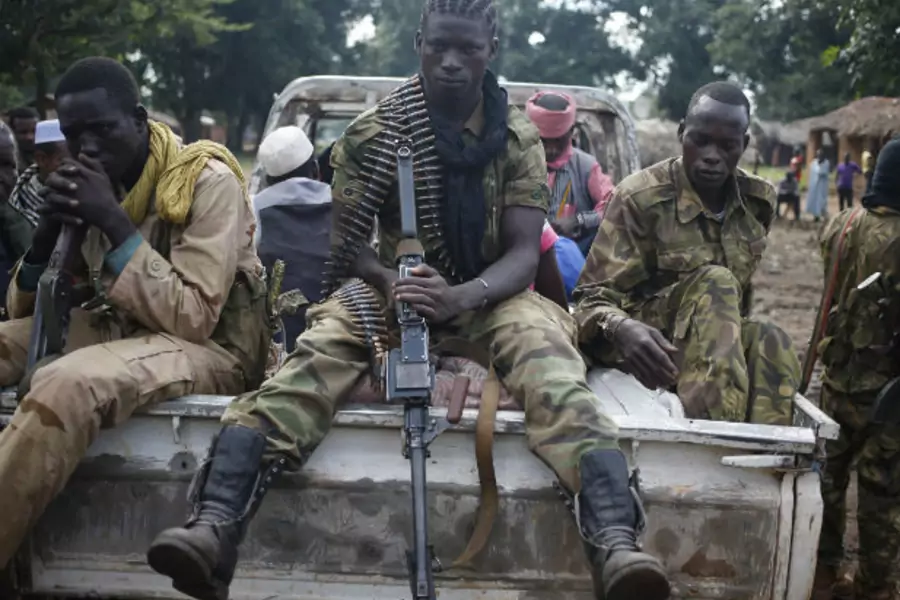More on:
This is a guest post by Emily Mellgard, research associate for the Council on Foreign Relations Africa Studies program.
The devastating yet disorganized fury and violence over the past eighteen months in the Central African Republic (CAR) has caused the collapse of the state and defied traditional conflict labels and international quick-fixes.
A new report from Thierry Vircoulon at the International Crisis Group is therefore a welcome call to address the causes of the current crises, not the symptoms. The crises are complex and multilayered, but most draw from a single source. In the words of Bill Clinton’s 1992 campaign strategist James Carville: “It’s the economy, stupid!”
Vircoulon identifies two aspects in particular that led to the current crises: a predatory state and an illegal economy. Numerous Central African governments have developed the state institutions, such as they were, toward a single purpose: self-enrichment and perpetuation of power. Gaining access to the diamond economy became the main motivation for seeking and holding political power. The timber, ivory, and gold sectors were also lucrative, but controlling the diamond trade was crucial to holding power. Central Africans outside the elite political circles turned to illicit economies, black markets, and smuggling routes—often under the overall management of government ministers or family members, or nascent rebel warlords—to survive.
Many of the Seleka commanders who swept to prominence during Djotodia’s short presidency had long had control of parts of the diamond mines in the northeast and management of the poaching and smuggling corridors between Sudan, Chad, and northern CAR. Once in power, they moved quickly to consolidate control over the mines, forests, and game parks in the south and west. These had traditionally been under the control of the southern-based president and his networks. Seleka extended smuggling and poaching networks across the nation, connecting their own northern networks with existing networks in the south and west. In the capital, shipments of ivory tusks, illegally harvested timber, and illicit diamonds seized by ministers either disappeared entirely or resurfaced later, resold on the black market.
Vircoulon identifies the current transitional government under President Catherine Samba-Panza as a fleeting but golden opportunity to restructure the CAR’s institutions and economy so the country can move forward as fundamentally more stable. Samba-Panza seems to genuinely want fundamental reform, and she cannot run in the elections she’s tasked to organize, which removes her, at least slightly, from the patronage influences. Neither keeping or creating peace on the ground, nor elections will end this crisis, but, Vircoulon advocates, a peacekeeping operation with the correct mandate, clear stabilization strategy, adequate resources, firm UN leadership, and a long term agenda could be the tool through which the country reinvents itself.
This mission should be a series of interventions structured around an “ethical reconstruction project” whereby the transitional government concentrates on combating official predation activities and institutional structures that allow and even encourage it, while the international organizations and allied nations secure the natural resources, and stabilize and reconstruct the nation. Focus should be on ensuring that the nation’s natural resources are secure, regulated by the government, but used for national benefit rather than remaining under the control of private hands and small groups. Simultaneously there needs to be job creation with a focus on infrastructure, agriculture, and livestock so the CAR can sustainably develop and feed itself in the future.
More on:
 Online Store
Online Store
